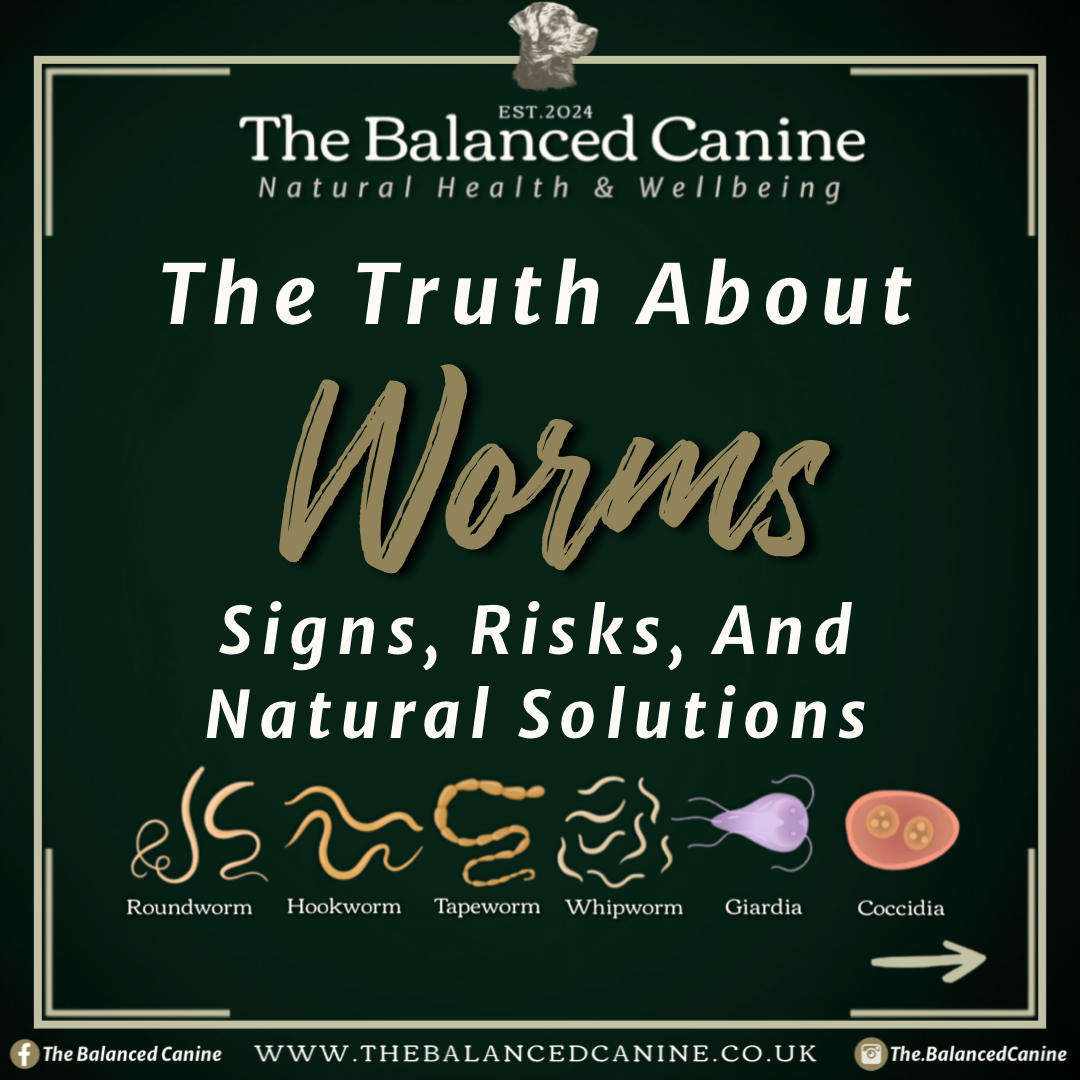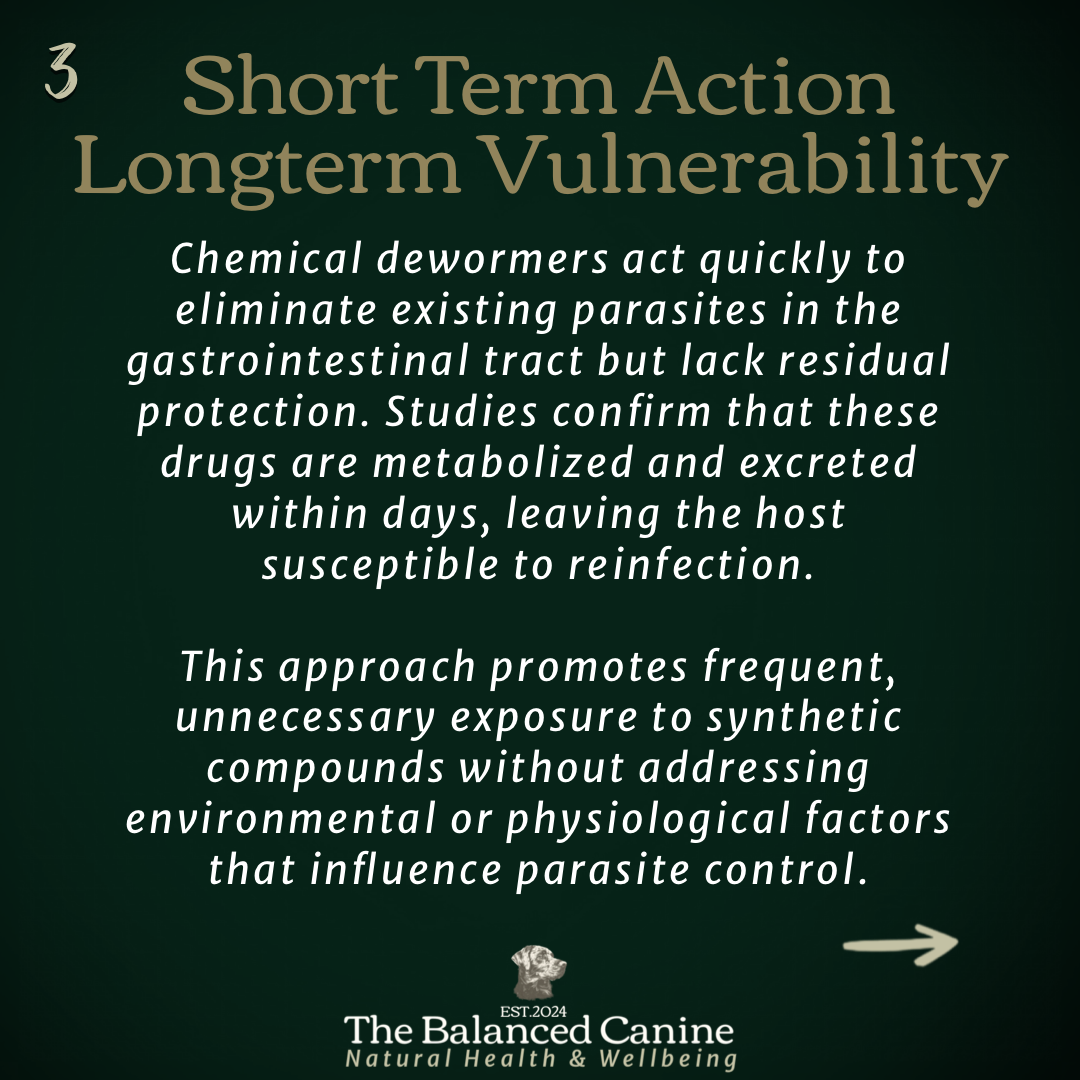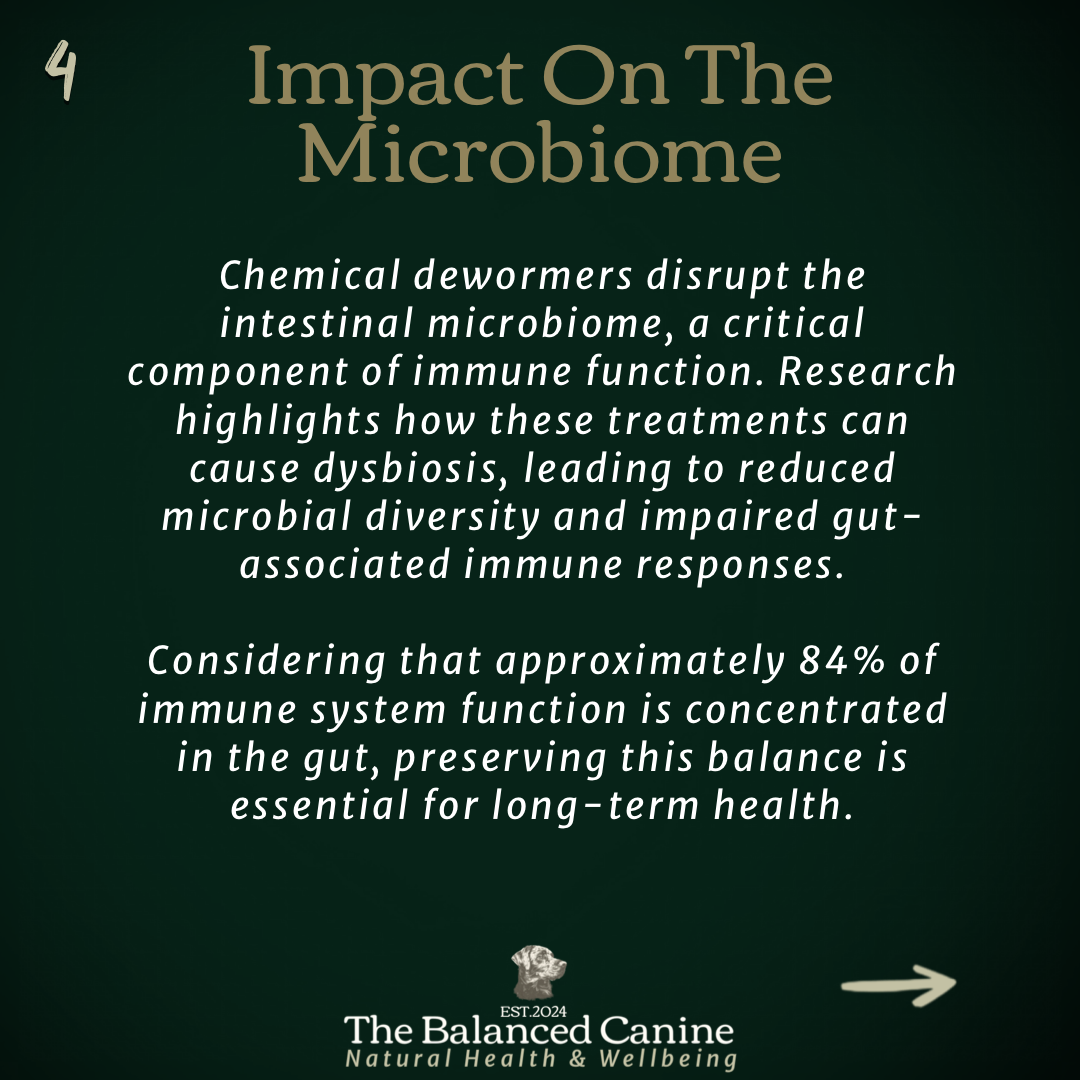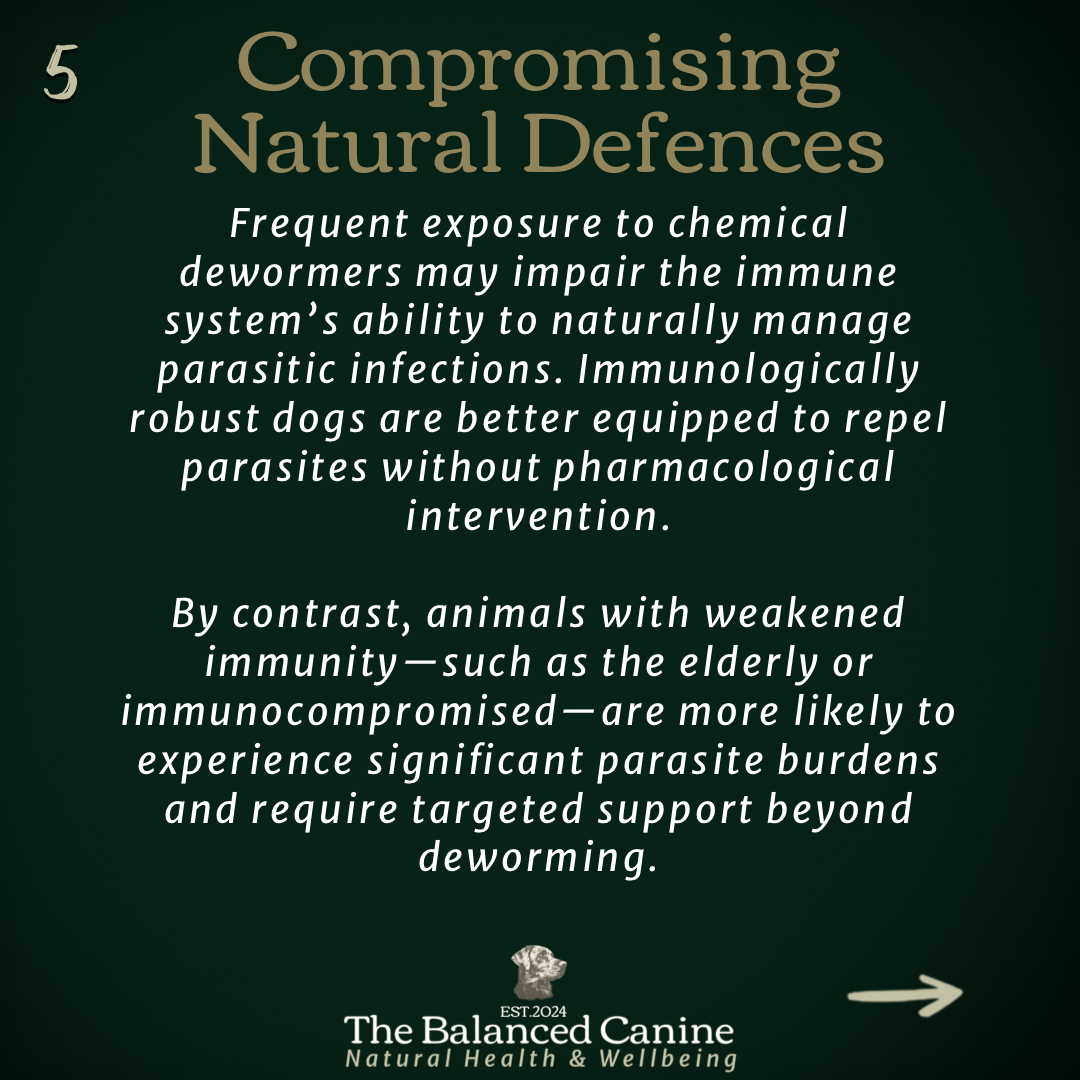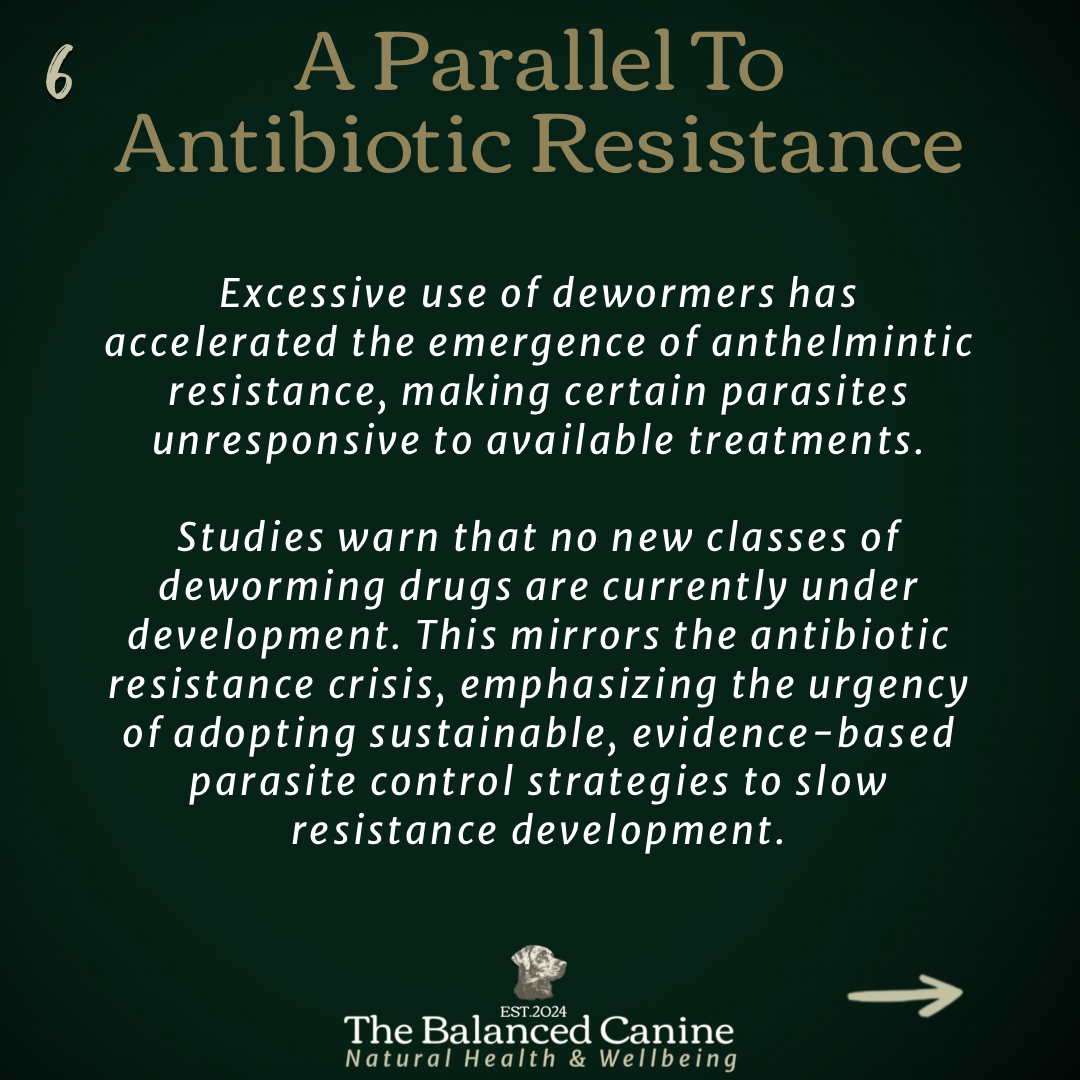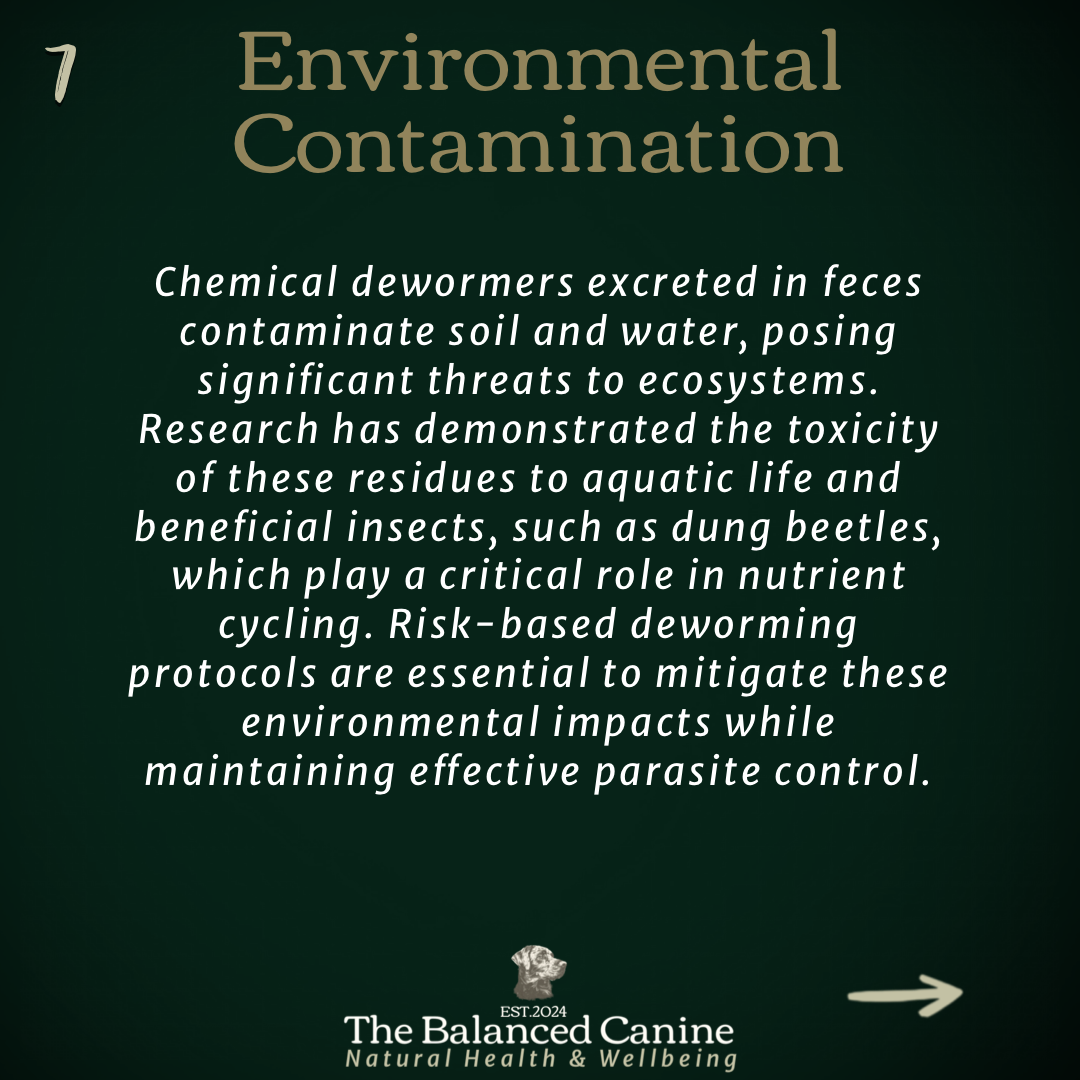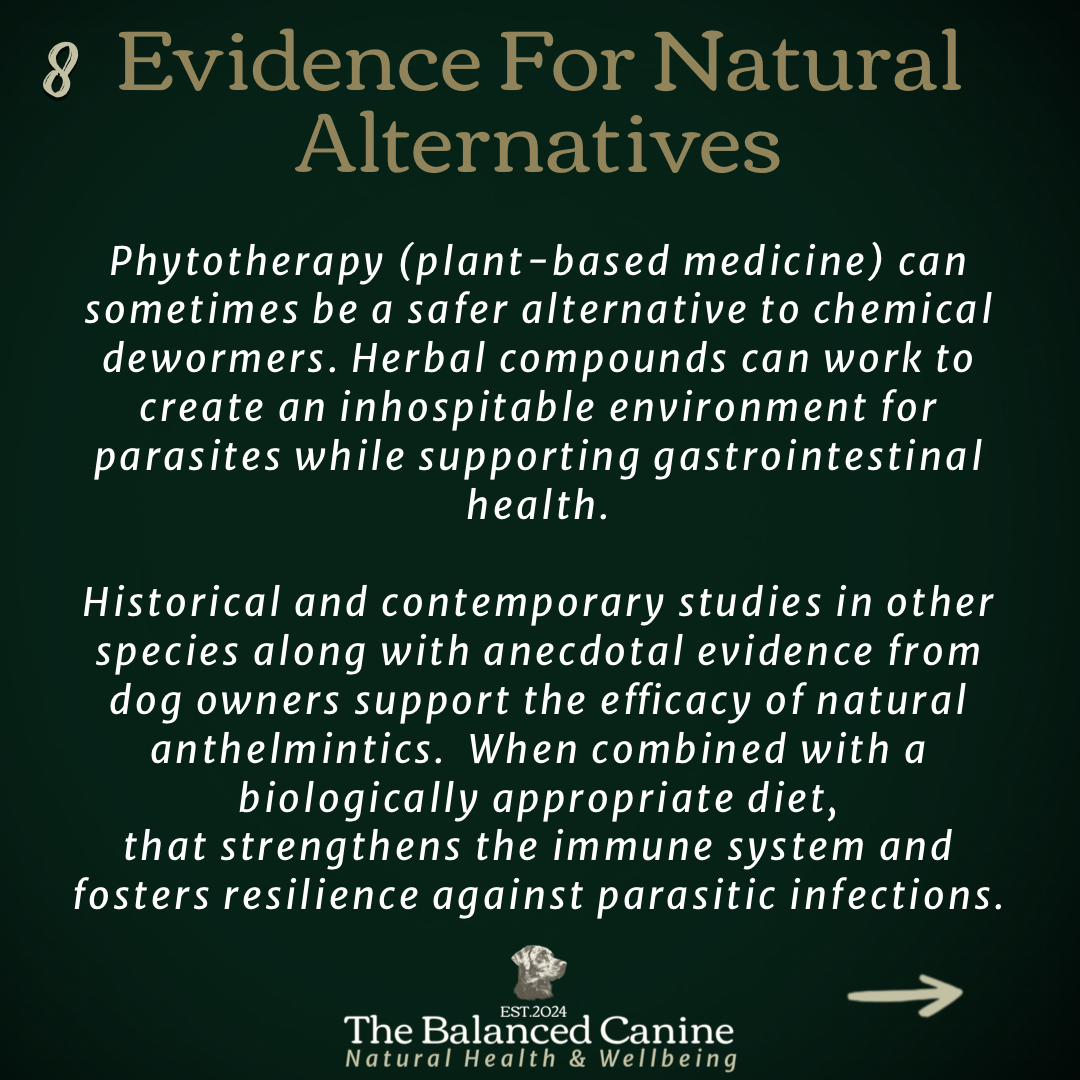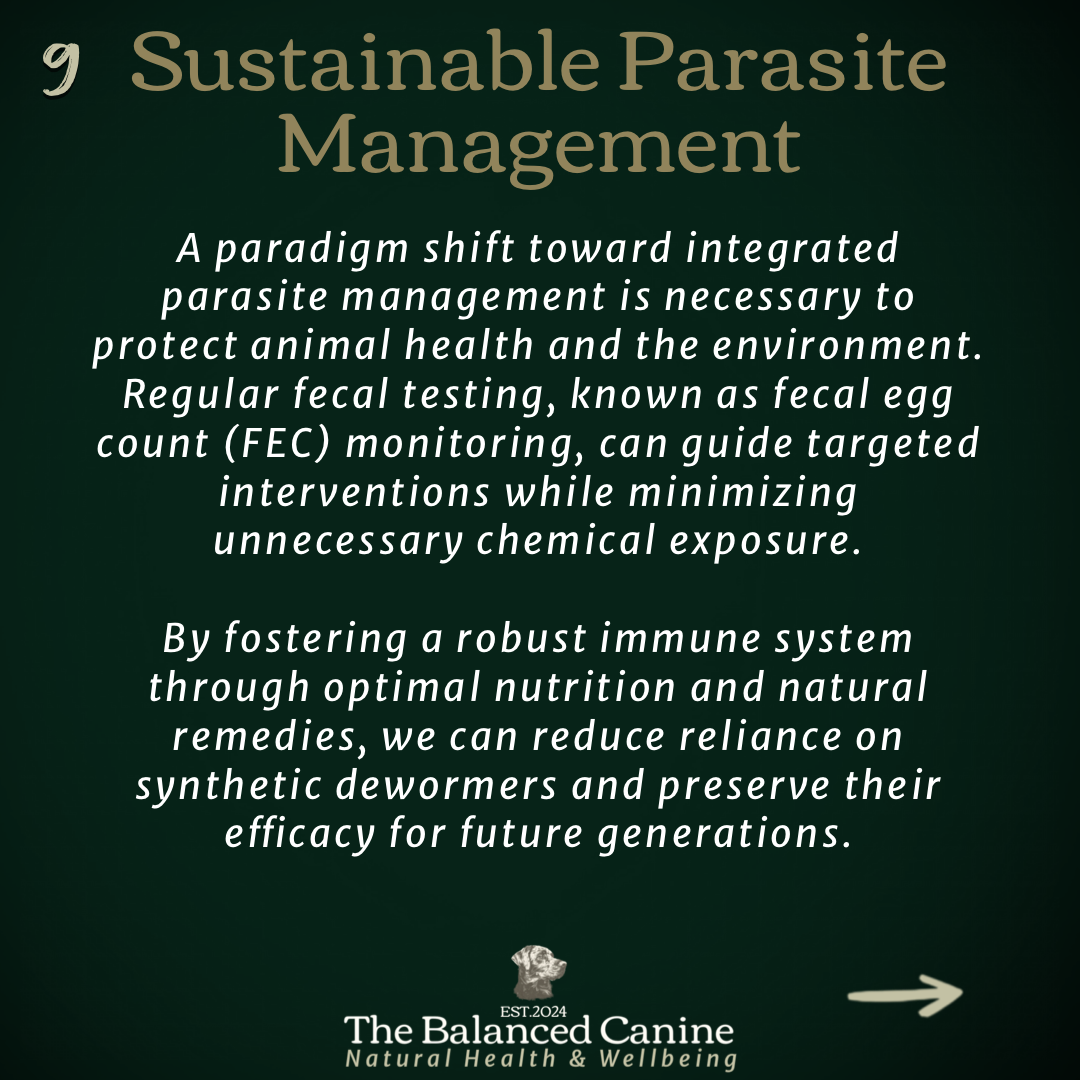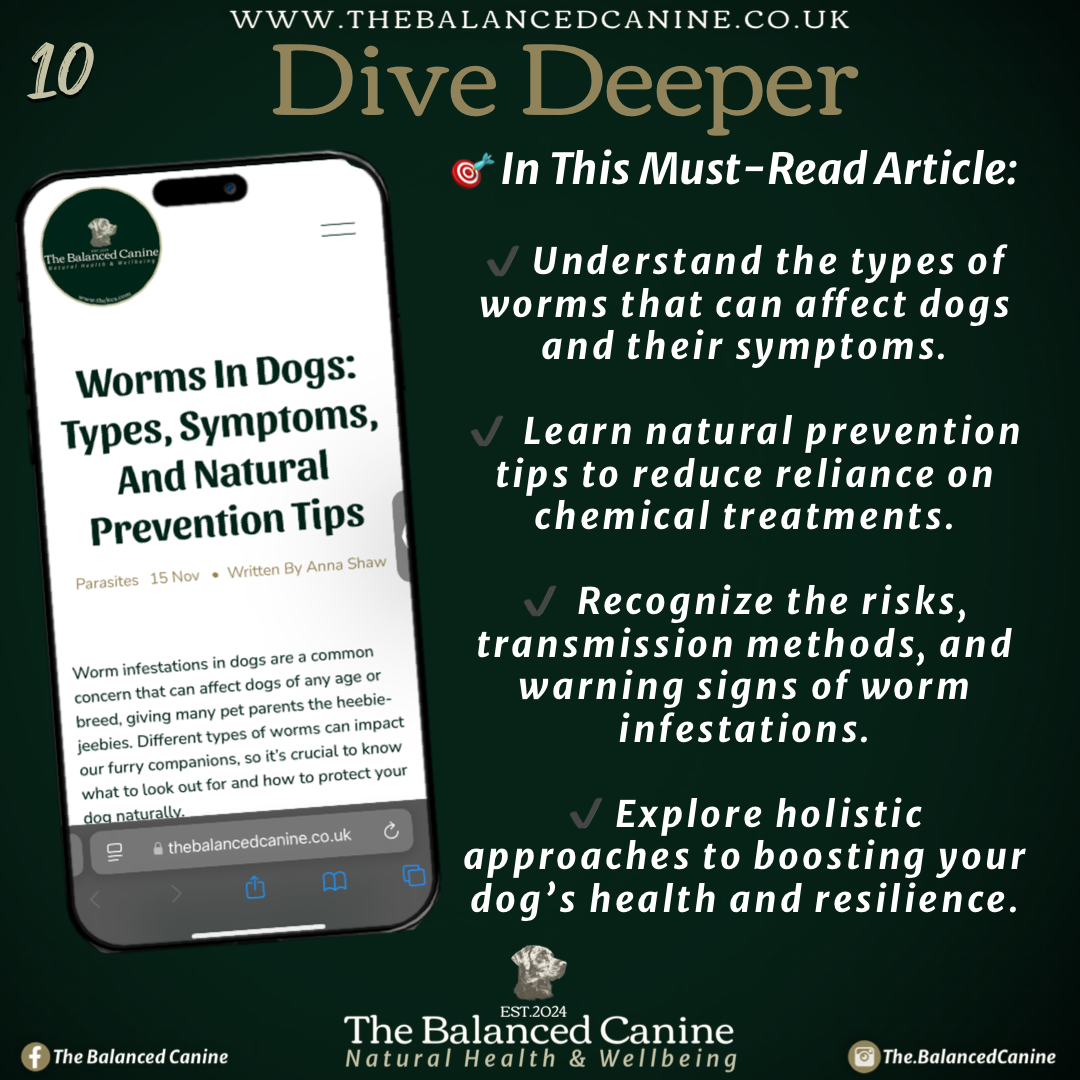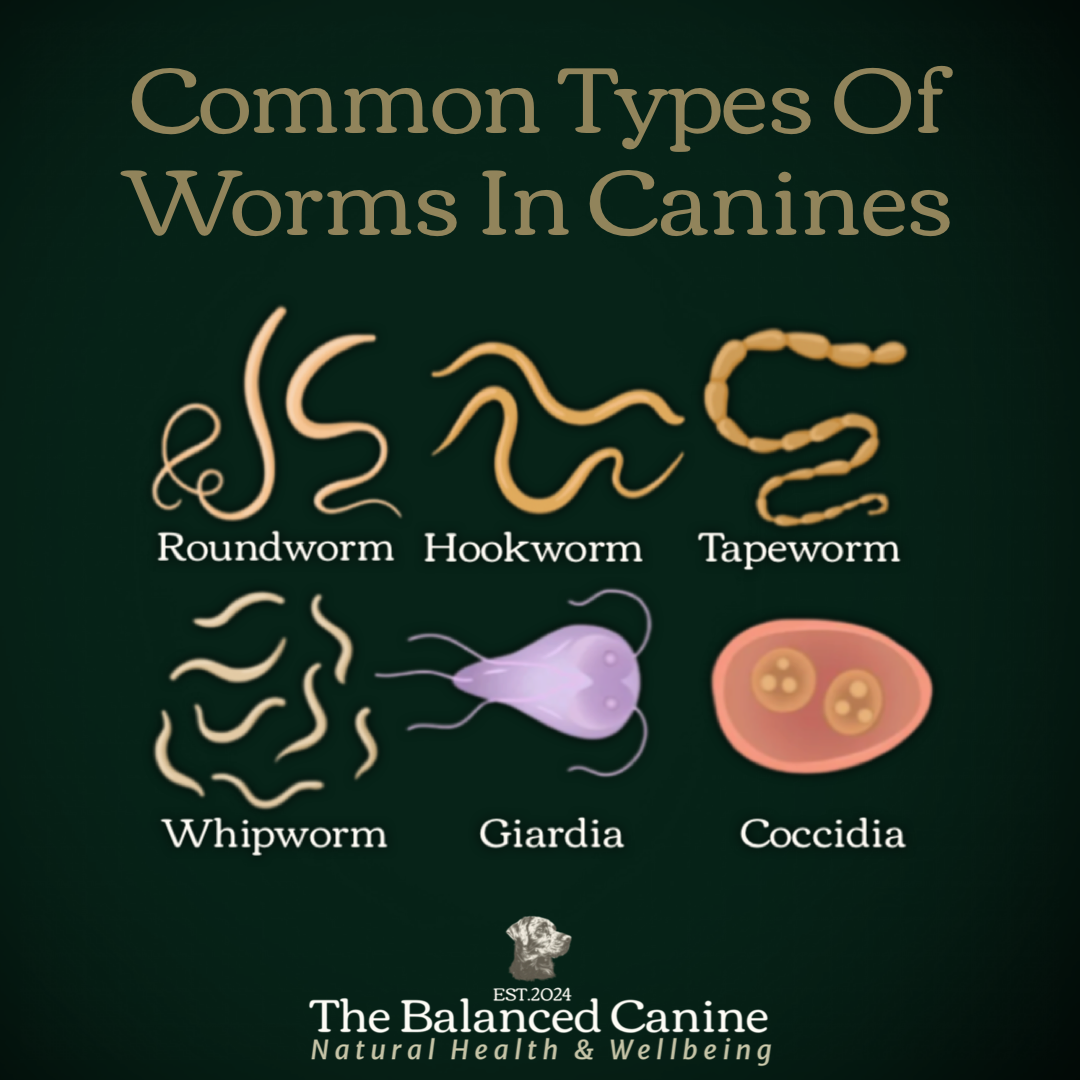Worms in Dogs: Types, Symptoms, and Natural Prevention Tips
Worm infestations in dogs are a common concern that can affect dogs of any age or breed, giving many pet parents the heebie-jeebies. Different types of worms can impact our furry companions, so it’s crucial to know what to look out for and how to protect your dog naturally.
Common Types of Worms in Dogs
1. Roundworms
Roundworms are the most prevalent intestinal parasites, especially in puppies. Dogs can contract them by ingesting contaminated soil, feces, or infected prey. Symptoms include a pot-bellied appearance, diarrhoea, vomiting, weight loss, and a dull coat.
2. Hookworms
These parasites can infect dogs through skin penetration or by ingesting larvae from contaminated environments. Hookworms can cause anemia, dark or bloody stools, diarrhea, weakness, and weight loss. Puppies can also acquire them through their mother’s milk.
3. Whipworms
Whipworms are more common in older dogs and spread through the ingestion of contaminated soil or faeces. Symptoms include bloody diarrhoea, weight loss, anaemia, and dehydration.
4. Tapeworms
Dogs can become infected by ingesting infected fleas or prey animals like rodents or rabbits. Symptoms might be subtle but can include weight loss, abdominal discomfort, and irritation around the anus. You might also spot tapeworm segments in your dog’s feces or near their rear. Ensuring meat is frozen for the recommended time frame before feeding can help kill potential parasites.
5. Heartworms
While not common in the UK, heart-worms are transmitted through mosquito bites and primarily affect the heart and lungs. Left untreated, they can be fatal. Symptoms include coughing, difficulty breathing, fatigue, weight loss, and reduced appetite.
6. Giardia
Giardia is a single-celled organism that infects the gastrointestinal tract, typically contracted from contaminated water, food, or surfaces. Signs include diarrhea, stomach cramps, nausea, dehydration, and an unpleasant odor to the stool. While natural treatment is possible, it’s a lengthy process that requires expert guidance. Always consult a raw or holistic vet for tailored advice.
7. Lungworm
Lungworms, particularly Angiostrongylus vasorum, affect the respiratory system and can be life-threatening if untreated. Symptoms include respiratory distress, weight loss, and other severe health complications. This parasite is more common in areas with high snail and slug populations but can appear in lower-risk regions too.
Natural Prevention and Deworming Tips
Regular deworming is essential, but it doesn’t have to involve harsh chemicals. Chemical dewormers have been associated with side effects like gastrointestinal upset, seizures, tremors, bloating, and weakness. Worse still, even with chemical preventatives, dogs can still contract worms.
Natural Deworming Solutions
• Wormwood Advanced Liquid for Cats & Dogs This gentle formula supports your dog’s intestinal health without harming their digestive system.
All Natural Pet - Four Seasons:This natural blend of Ingredients supports Intestinal hygiene, without altering the natural gut flora, and is well tolerated by the most sensitive of pets.
Garlic: Garlic is often praised for its natural health benefits, including its potential anti-parasitic properties. While no studies have specifically evaluated its effectiveness as a dewormer in dogs, research in mice and chickens demonstrated that garlic extract significantly reduced worm burdens in Heligmosomoides bakeri infections (Ayaz E, Türel I, Gül A, Yilmaz O. Evaluation of the anthelmentic activity of garlic (Allium sativum) in mice naturally infected with Aspiculuris tetraptera. Recent Pat Antiinfect Drug Discov. 2008 Jun;3.).(And effectiveness of garlic in chickens Waghorn TS, Molan AL, Deighton M, Alexander RA, Leathwick DM, McNabb WC, Meagher LP. In vivo anthelmintic activity of Dorycnium rectum and grape seed extract against Ostertagia (Teladorsagia) circumcincta and Trichostrongylus colubriformis in sheep. N Z Vet J. 2006 Feb;54)Additionally, garlic is known to act as a natural repellent for fleas and ticks and can provide other health benefits when used appropriately, such as supporting the immune system and promoting heart health. Despite its potential, it’s essential to use garlic in moderation and consult a veterinarian to ensure safe usage tailored to your dog.
• Crushed Pumpkin Seeds: Pumpkin seeds are often touted as a natural deworming aid due to cucurbitacin, an amino acid believed to paralyze worms and facilitate their expulsion. While research in goats has shown promising results—demonstrating that cucurbitacin effectively reduced worm burdens (Research from Delaware State University, 2008)—there are currently no studies confirming similar effects in dogs. The use of pumpkin seeds for deworming remains debated among professionals, with limited evidence supporting their efficacy in canines. However, some pet parents, including members of our team, report using them as part of a preventative approach with no signs of worm infestations in their dogs.
Regular Worm Counts and Monitoring
Routine worm counts are crucial. We recommend performing them every three to four months or as per the manufacturer’s advice to ensure your pet is parasite-free. This involves sending a fecal sample for microscopic examination to detect worm eggs or larvae. You can find several worm count lab services around the world on our global parasite prevention list here
Best Practices for Worm Prevention
Maintain good hygiene by disposing of faeces properly, cleaning living areas with non-toxic products, and providing a balanced diet. Prevent your dog from drinking from puddles or shared water bowls outside to reduce the risk of parasites.
For even more natural parasite prevention products around the world, to help treat and prevent worms, check out our comprehensive global parasite prevention list.
For more information on natural products for worm prevention or treating infestations, reach out to our team via the group for expert advice and protocols tailored to your pet’s needs.
